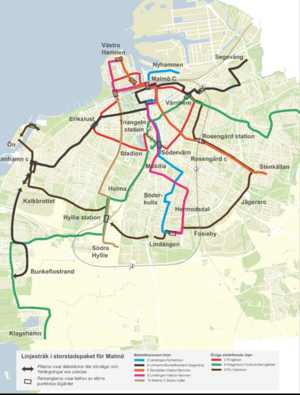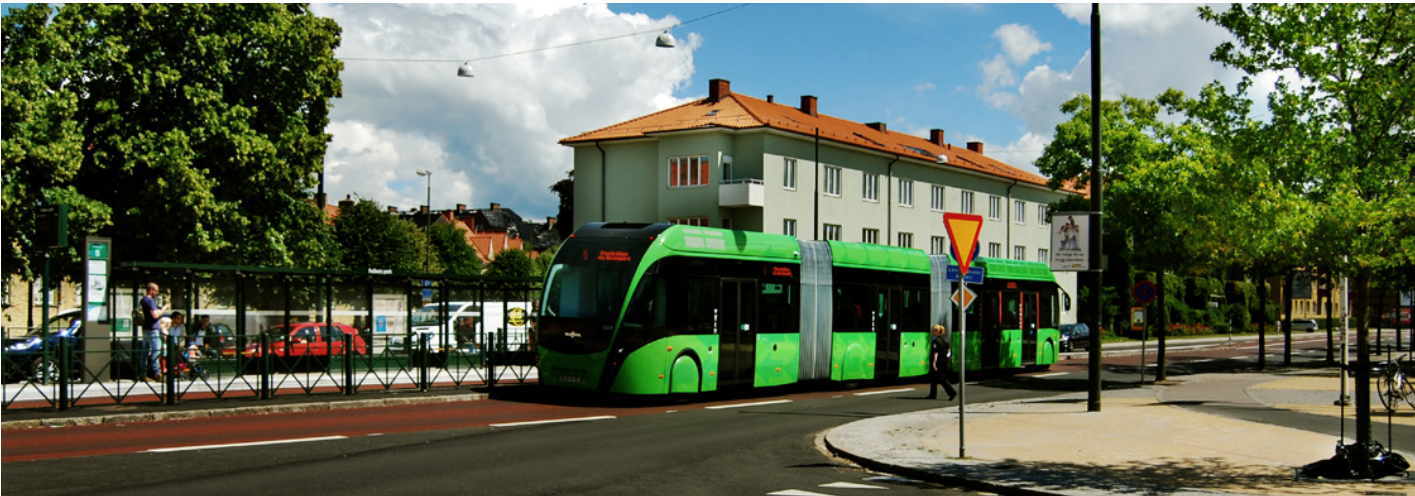Deployment of electric Express Bus and cycling network (Malmö, Sweden)

Area: urban
Date implemented: the framework agreement was decided upon by City Council in October 2017, and the Technical Board was commissioned to implement the measures in June 2018. The final decision for plan implementation was adopted in September 2018; all infrastructure measures must be completed by 2031.
How long from concept to implementation: Negotiations from 2014-2017; planning and roll-out since 2018. Investigations/feasibility studies from concept to design and implementation planning has taken an average of 2-2.5 years.
Relation between efforts undertaken and benefits achieved: moderate – impacts of different measures will be apparent at different times; pilots are promising, but the impact of the pandemic remains unknown
What was done and how: Negotiations took place between national, regional and city level authorities regarding measures that will: (1) increase mobility and accessibility through improved public transport and (2) increase housing production. The project is ongoing, and includes eight bus lines to be electrified, five of which are Malmo Express Busses (MEX); 14 bicycle infrastructure projects and approx. 30 km expansion of cycle paths; development of railway tracks to achieve higher capacity of rail-bound commuter traffic.
Why it worked to 'fast track' the innovation/measure: The three biggest cities in Sweden have an agreement with the government to receive 50% in infrastructure funding (the National Big City Package), given that they deliver both sustainable infrastructure and a considerable amount of housing according to an agreed schedule. Further evaluation is not yet possible, as none of the new bus lines have been put into operation.
Sources or links:

Date implemented: the framework agreement was decided upon by City Council in October 2017, and the Technical Board was commissioned to implement the measures in June 2018. The final decision for plan implementation was adopted in September 2018; all infrastructure measures must be completed by 2031.
How long from concept to implementation: Negotiations from 2014-2017; planning and roll-out since 2018. Investigations/feasibility studies from concept to design and implementation planning has taken an average of 2-2.5 years.
Relation between efforts undertaken and benefits achieved: moderate – impacts of different measures will be apparent at different times; pilots are promising, but the impact of the pandemic remains unknown
What was done and how: Negotiations took place between national, regional and city level authorities regarding measures that will: (1) increase mobility and accessibility through improved public transport and (2) increase housing production. The project is ongoing, and includes eight bus lines to be electrified, five of which are Malmo Express Busses (MEX); 14 bicycle infrastructure projects and approx. 30 km expansion of cycle paths; development of railway tracks to achieve higher capacity of rail-bound commuter traffic.
Why it worked to 'fast track' the innovation/measure: The three biggest cities in Sweden have an agreement with the government to receive 50% in infrastructure funding (the National Big City Package), given that they deliver both sustainable infrastructure and a considerable amount of housing according to an agreed schedule. Further evaluation is not yet possible, as none of the new bus lines have been put into operation.
Sources or links:







